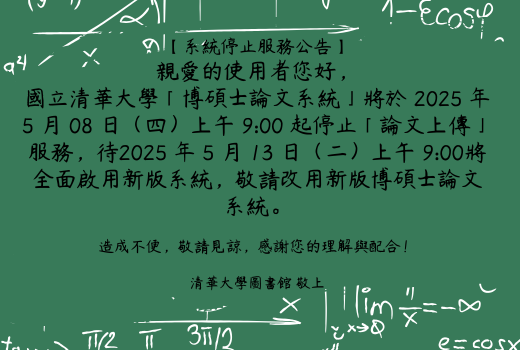|
朱芳妮, 楊茜文, 蘇子涵, 與陳明吉 (2020a),「情緒會影響房市嗎?指數編製與驗證」,《住宅學報》,29,35-68。
朱芳妮, 楊茜文, 黃御維, 與陳明吉 (2020b),「媒體傳播效應與房市變化關聯性之驗證」,《管理學報》,37,225-257。
李苑慈 (2010),「熱錢與臺灣實質資本市場之關聯性」,碩士論文,新竹:國立清華大學經濟學系研究所。
郭偉傑 (2020),「各類新聞與正負面情緒對房市之影響:文字探勘之應用」,碩士論文,臺北:國立政治大學財務管理學系研究所。
陳虹宇, 吳聰敏, 李怡庭, 與陳旭昇 (2021),《致富的特權:二十年來我們為央行政策付出的代價》,初版,臺北:春山出版。
黃暐迪 (2023 年 11 月 26 日),臺灣住宅變準金融商品 章定煊曝:房價「這樣」刺激出來的,好房網News,取自:https://news.housefun.com.tw/news/article/205642401397.html,訪問於 2024 年 4 月 12 日。
黃裕烈, 葉錦徽, 與陳重吉 (2021),「臺灣經濟政策不確定性指標之建構與分析」,《經濟論文叢刊》,49,307-334。
黃裕烈與管中閔 (2019) 「美國聯準會會議紀要的文字探勘與台灣經濟變數預測」,《經濟論文叢刊》,47,363-391。
楊青燕 (2012),「熱錢流入是否會影響臺灣股價與房價」,碩士論文,新竹:國立清華大學經濟學系研究所。
蔡昀蓁 (2022),「台灣房地產市場及經濟變數間之關聯性:文字探勘的應用」,碩士論文,新竹:國立清華大學財務金融碩士在職專班。
Alagidede, P., Panagiotidis, T., and Zhang, X. (2011), “Causal relationship between stock prices and exchange rates,” The Journal of International Trade and Economic Development, 20, 67-86.
American Economic Journal: Microeconomics, 3, 114-138.
Bahmani-Oskooee, M., and Saha, S. (2016), “Do exchange rate changes have symmetric or asymmetric effects on stock prices? ,” Global Finance Journal, 31, 57-72.
Baker, S. R., Bloom, N., and Davis, S. J. (2016), “Measuring economic policy uncertainty,” The Quarterly Journal of Economics, 131, 1593-1636.
Chen, N. K. (2001), “Asset price fluctuations in Taiwan: Evidence from stock and real estate prices 1973 to 1992,” Journal of Asian Economics, 12, 215-232.
Daniel, K. (2012), Thinking, fast and slow, New York: FSG.
Feng, L., Lin, C. Y., and Wang, C. (2017), “Do capital flows matter to stock and house prices? Evidence from China,” Emerging Markets Finance and Trade, 53, 2215-2232.
Gokmenoglu, K., and Hesami, S. (2019), “Real estate prices and stock market in Germany: analysis based on hedonic price index,” International Journal of Housing Markets and Analysis, 12, 687-707.
Guo, F., and Huang, Y. S. (2010), “Does “hot money” drive China's real estate and stock markets?,” International Review of Economics and Finance, 19, 452-466.
Ibrahim, M. H. (2010), “House price‐stock price relations in Thailand: An empirical analysis,” International Journal of Housing Markets and Analysis, 3, 69-82.
Kapopoulos*, P., and Siokis, F. (2005), “Stock and real estate prices in Greece: wealth versus ‘credit-price’effect,” Applied Economics Letters, 12, 125-128.
Lean, H. H., and Smyth, R. (2014), “Dynamic interaction between house prices and stock prices in Malaysia,” International Journal of Strategic Property Management, 18, 163-177.
Lin, C. H. (2012), “The comovement between exchange rates and stock prices in the Asian emerging markets,” International Review of Economics and Finance, 22, 161-172.
Mahmoudinia, D., and Mostolizadeh, S. M. (2023), “(A) symmetric interaction between house prices, stock market and exchange rates using linear and nonlinear approach: the case of Iran,” International Journal of Housing Markets and Analysis, 16, 648-671.
Martin, M. F., and Morrison, W. M. (2019), China's" hot money" problems, Washington: Congressional Research Service.
Sim, S., and Chang, B. (2006), “Stock and real estate markets in Korea: wealth or credit-price effect,” Journal of Economic Research-seoul-, 11, 103.
Zhang, G., and Fung, H. G. (2006), “On the imbalance between the real estate market and the stock markets in China,” Chinese Economy, 39, 26-39.
|
